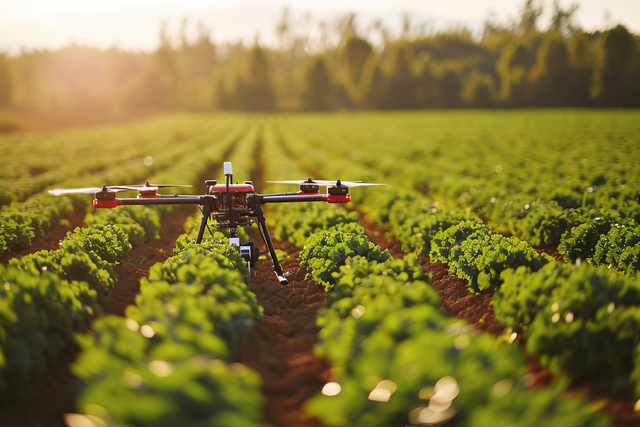In the dynamic world of Australian horticulture, managing supply chains efficiently is crucial for the success of any farming operation. As the industry contends with the pressures of timely delivery, quality maintenance, and cost management, innovative solutions are increasingly sought after. Smart WiFi solutions have emerged as a pivotal technology, enhancing connectivity and providing the backbone for sophisticated supply chain management tools that keep Australian horticultural businesses ahead in a competitive market.
The Importance of Efficient Supply Chain Management
Effective supply chain management is vital in horticulture, where the quality of produce can deteriorate quickly if not handled correctly. From farm to table, every step in the supply chain must be optimised to maintain the freshness and quality of produce, ensure timely delivery, and minimise losses and costs. Here’s where robust WiFi connectivity plays a transformative role.
Streamlined Operations with Real-Time Communication
One of the primary benefits of a smart WiFi network is the seamless real-time communication it facilitates across the supply chain. With workers, managers, and external partners all connected, information regarding inventory levels, delivery schedules, and potential disruptions can be shared instantly. This immediate exchange of information helps in making quick decisions that are critical to resolving issues before they affect the broader supply chain.
Enhanced Tracking and Transparency
WiFi-enabled tracking systems allow for real-time monitoring of products as they move from the farm to the consumer. These systems can track the location and condition of produce, providing transparency and accountability at every stage of the supply chain. This level of detail is invaluable for ensuring that all parties involved in the supply chain can access up-to-date information and take necessary actions, enhancing trust and efficiency.
Leveraging Smart WiFi Solutions
Implementing smart WiFi solutions equips horticultural businesses with the tools necessary to manage their supply chains more effectively. Here are some ways that WiFi technology can be leveraged:
IoT and Automation in the Supply Chain
The Internet of Things (IoT) offers significant advantages in automating and refining supply chain processes. WiFi-connected sensors can monitor conditions such as temperature and humidity in real-time, ensuring that produce is stored and transported under optimal conditions. Additionally, automated systems can adjust these conditions dynamically, significantly reducing the risk of spoilage.
Data-Driven Decision Making
Smart WiFi solutions facilitate the collection and analysis of large volumes of data across the supply chain. This data can be used to predict demand, optimise inventory levels, and identify the most efficient routes and methods for distribution. By making data-driven decisions, farms can minimise waste, reduce costs, and improve overall supply chain efficiency.
Mobile Solutions for Supply Chain Management
Mobile technology, enabled by robust WiFi connectivity, allows farm managers and supply chain coordinators to manage operations from anywhere on the farm or beyond. Mobile apps can provide notifications about inventory levels, delivery statuses, and even worker productivity, ensuring that managers have their fingers on the pulse of their operations at all times.
Case Studies of WiFi in Action
Incorporating WiFi solutions has proven successful for several leading horticultural businesses across Australia. For instance, a Victorian berry farm implemented a WiFi-based IoT system to monitor their cold storage units. This system provided alerts when temperatures deviated from the set range, allowing the farm to act swiftly to adjust conditions, thereby reducing spoilage rates significantly.
Another example is a Queensland citrus grower who used WiFi-enabled drones to assess crop health and optimise their picking schedule. This approach ensured that only ripe fruit was harvested, improving product quality and reducing waste due to premature picking.
Challenges and Considerations
While the benefits of smart WiFi solutions are clear, there are challenges and considerations that must be addressed:
Infrastructure Investment
Establishing a robust WiFi network requires upfront investment in infrastructure, including routers, extenders, and IoT devices. Farms need to consider their current and future needs when planning this investment to ensure the network is scalable and can accommodate growing data demands.
Security Concerns
As with any technology that handles data, security is a paramount concern. Farms must implement secure WiFi protocols and consider cybersecurity measures to protect sensitive supply chain information from potential breaches.
Training and Adaptation
Implementing new technologies requires a shift in how teams operate. Adequate training must be provided to ensure all staff are proficient in using new systems and tools. Additionally, businesses must be adaptable, ready to tweak processes as they learn from data insights and technological advancements.
Conclusion
Smart WiFi solutions are revolutionising supply chain management in Australian horticulture. By enhancing connectivity, enabling real-time communication, and supporting data-driven decision-making, these technologies are helping farms improve efficiency, reduce costs, and maintain the quality of their produce from farm to fork. As the industry continues to evolve, embracing these advanced technologies will be key to staying competitive and meeting the demands of a growing market.





